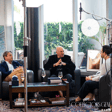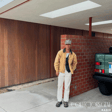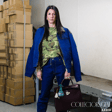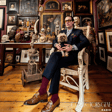
Vincent Brasesco - Vice President & Watch Specialist @ Sotheby's
Today on Collectors Gene Radio, I welcome Vincent Brasesco, a true connoisseur whose passion for mechanical artistry has taken him from curious teenage collector to Vice President and Watch Specialist at Sotheby’s. Vincent’s journey has traversed the vibrant subcultures of Wall Street wristwear, the pioneering spirit of Analog Shift, the retail sophistication of Watches of Switzerland, and the digital influence of Watchonista—all culminating in his current role within the world of international auctions.
We explore not only the watches themselves, but the psychology of pursuit: the irresistible pull of the next bid, the truth behind phone bidding, and the nuanced dance between personal passion and professional responsibility.
We’ll also step inside the inner sanctum of RollieFest, the invitation-only gathering of the world’s most devoted vintage Rolex collectors, where trust, passion, and an unwavering commitment to excellence converge in a spectacle few are privileged to witness.
So please enjoy, this is Vincent Brasesco, for Collectors Gene Radio.
Vincent's Instagram - https://www.instagram.com/vbrasesco?igsh=dTBvYTN0cGN6anV4
Sotheby's Watches - https://www.sothebys.com/en/departments/watches
Cameron Steiner - https://www.instagram.com/cameronrosssteiner
Collectors Gene - https://www.collectorsgene.com



















